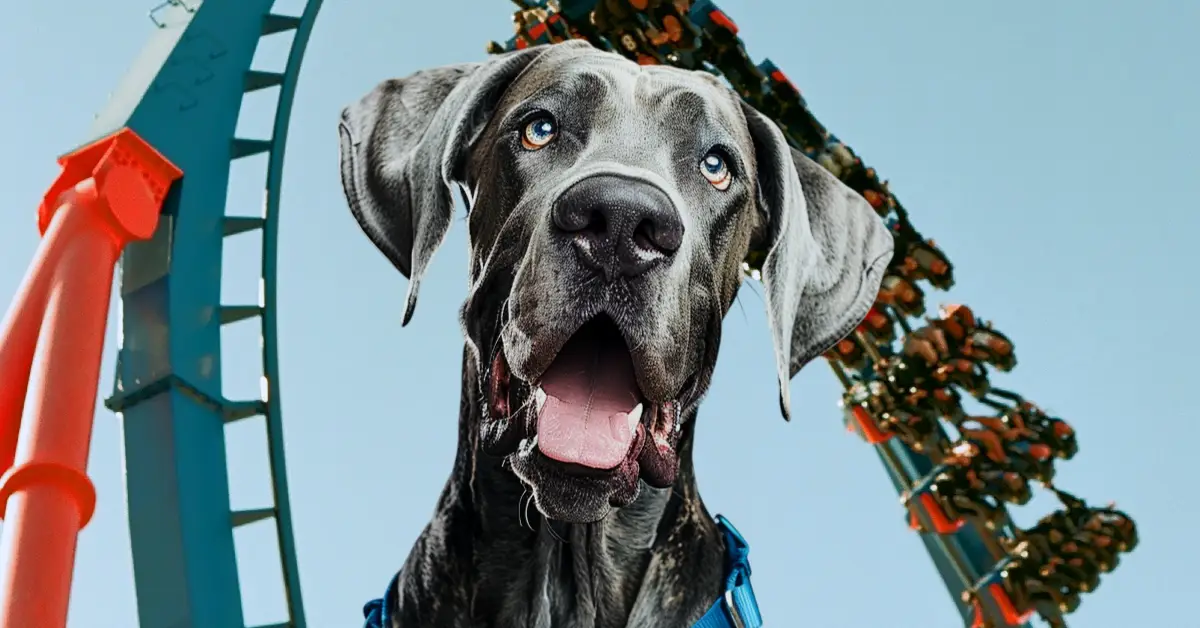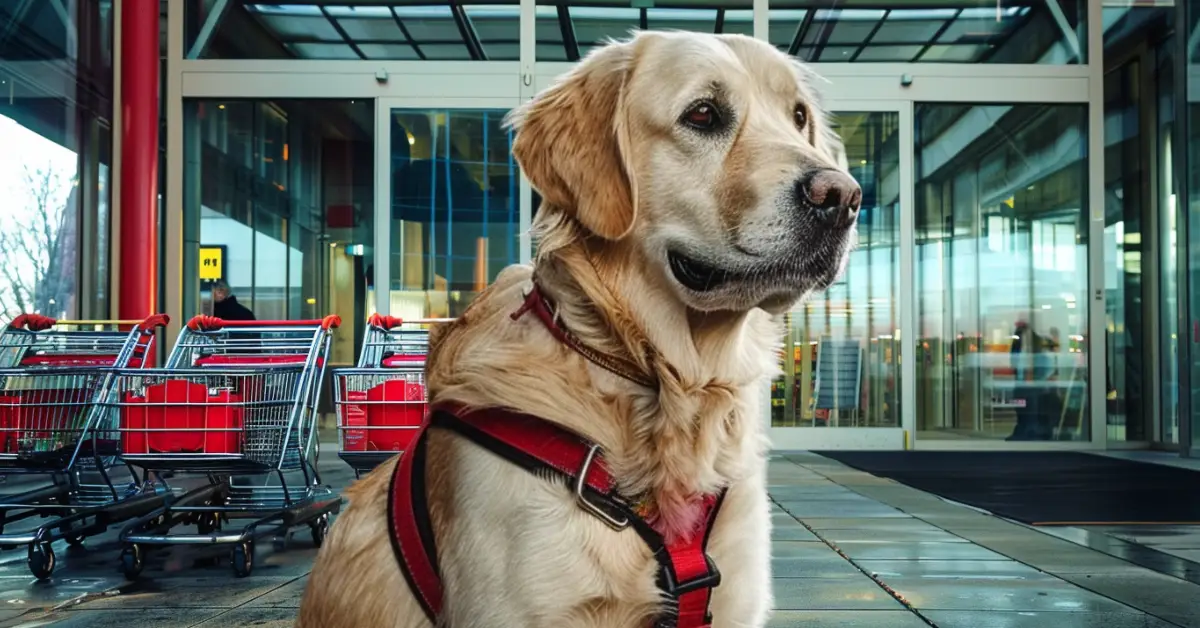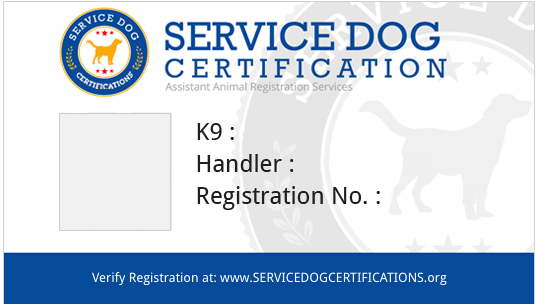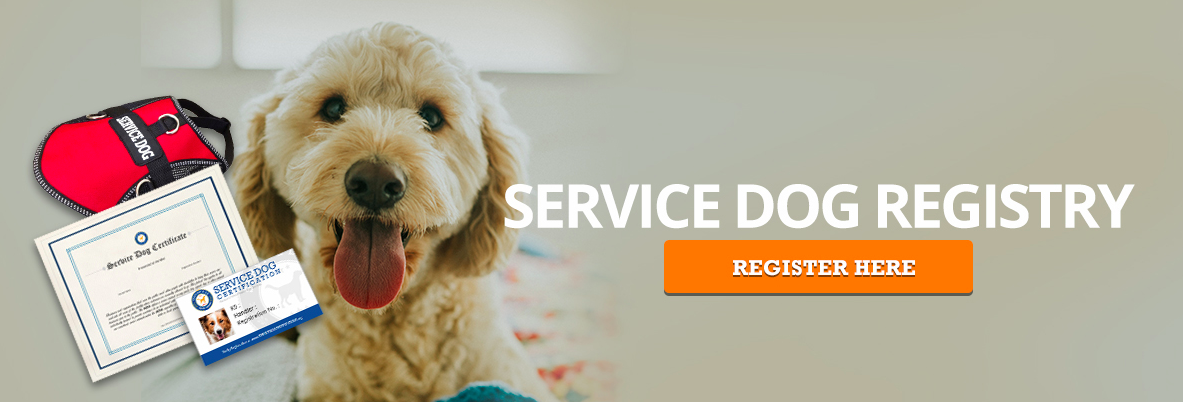Can a Maltese Be a Service Dog?

Who can resist the snow white coat, dancing eyes, and spunky nature of the Maltese? This cute, spritely little pooch excels at many things like agility, tracking, obedience, and rally.
Can a Maltese be a Service Dog? If so, you would be able to go anywhere you go with your Maltese!
Read on as we explore the world of service and how the Maltese may be of assistance.
General Traits of the Maltese
Over the decades, the Maltese have been given many names. These include;
- Melitae Dog

- Ye Ancient Dogge of Malta
- The Roman Ladies Dog
- The Comforter
- The Spaniel Gentle
- The Bichon
- The Maltese Lion Dog
- The Maltese Terrier
Today, he is known just as the Maltese.
This beautiful breed has flowing silky white hair, giving this dog the illusion of floating when walking. Because the Maltese don’t have an undercoat, it sheds very little and has been acceptable for those that suffer from mild pet allergies.
The Maltese needs minimal exercise and is therefore quite adaptable to living in apartments, condos or homes with small yards. However, it does not do well left alone for long periods-of-time. In fact, a neglected Maltese can suffer from separation anxiety which can lead to destructive behaviors such as excessive barking and chewing,
Personality wise, the Maltese is a lot of dog packed into a small package. He loves the companionship of his family and takes well to positive reinforcement training methods (treats, praise, and play).
They are a fearless breed that gets along with most people and other animals. If you are looking for a dog to alert you to strangers at the door, the Maltese is very responsive to his surroundings.
As with all dogs, to have a well-rounded Maltese, experts recommend early socialization and even puppy kindergarten classes. These are both excellent ways to expose your pup to new people, other dogs, and outside situations.
Fast Facts About the Maltese
Height: 8 to 10 inches at the shoulder
Weight: Up to 7 pounds
Lifespan: 12 to 15 years
The Maltese as a Service Dog
Although the Maltese would not be suited for heavy service work, such as pulling a wheelchair, this breed can be helpful in other areas.
Because this breed is very trainable, a person needing help with opening low cabinet doors or retrieving small objects may find the Maltese a valuable asset.
The Maltese can also be trained as a Medical Alert canine. This includes giving people a warning when they have a drop in blood sugar, for epilepsy, low oxygen levels, etc.
Therapy work is another area of service where the Maltese will excel. The breed is small and compact enough, so people who are dealing with emotional or psychiatric conditions can bring the dog along for support – it loves to be cuddled, and thrives on human attention making this area of service work a natural fit.
This little pooch would also make an excellent outside therapy dog bringing joy and comfort to those folks in nursing homes, hospitals, palliative care facilities, schools, or disaster relief situations.
What to Look for in a Potential Service Dog
The breed isn’t the only factor you need to look for in a Service Dog. Here are some additional qualities a good Service Dog should possess;
- Intelligence, obedience and the ability to problem-solve.
- Should be the right size, and have the proper amount of strength, and stamina to perform the duties.
- The dog must be physically active, yet calm and well-behaved when in public. Not hyper, snappy or creating a ruckus.
Can a Maltese Be a Service Dog?
With the proper training and early socialization, there are many areas of service the Maltese would excel at. If you are looking for a compact pooch with a lot of love to give, you can’t go wrong with the Maltese.
As with any canine, be sure to seek out a reputable breeder or rescue organization to adopt your Maltese. These people can direct you to the best puppy they have for the task of service work.
Getting the help, you need to make your life a little bit easier can be found in the perfect Service Dog. Find one today that suits your needs and get back to living a healthier lifestyle.
About the Author: The writing team at Service Dog Certifications is made up of folks who really know their stuff when it comes to disability laws and assistance animals. Many of our writers and editors have service dogs themselves and share insights from their own experiences. All of us have a passion for disability rights and animals.
9 comments
Leave a Reply Cancel reply
Latest Posts

Can you bring a service dog to a museum?
Yes, you can bring your service dog to the museum! All the major U.S. museums welcome guests with service animals in accordance with the Americans with Disabilities Act (ADA). There are some areas, however, that might be off-limits. Here’s what you should know if you plan to spend a day at the museum with your […]

Read More

How to Bring a Service Dog to Six Flags Magic Mountain
Service dogs are welcome at Six Flags Magic Mountain so long as they are, according to Six Flags, “trained to do work or perform tasks for people with disabilities.” Of course, your dog must be housebroken and remain on a leash or harness and under your control while at the park — and the park […]

Read More

When Stores Can Refuse Your Service Dog
According to the Americans with Disabilities Act (ADA), service dogs should be allowed into any store most of the time. A store owner can legally exclude a service dog if they are actively growling, snapping at, or frightening customers, or if the dog is obviously out of the control of its owner. Ordinary behaviors — […]

Read More


Love you thank you for
Searching for a Maltese Dog to train as a Therapy Dog for visiting the patients I see in nursing facilities in the DFW area.
Hello I have a maltipoo service dog, and she is amazing. She actually is trained to give me DPT because of my anxiety and panic disorder. Although she is small she does what I initially need her to do. I am very grateful and I would get a maltipoo again i f I need to.
Where did you get your service dog from and how much did your dog cost? My daughter has major anxiety and PTSD and we are looking into getting her one.
I have severe anxiety, depression, and ptsd. I never thought of getting a service animal until my friend had mentioned it. Now I have a year old Maltese who is amazing at dpt, item retrieval, crowd control, and alerting me for panic attacks or anxiety attacks. I am very proud to say a Maltese would be a good ptsd service dog or an amazing therapy dog 🙂
We’re happy to hear your service dog is helping you with your mental health conditions! If anyone needs more info about PSDs, please see this link: https://www.servicedogcertifications.org/psychiatric-service-dog/
Can I ask how you trained your Maltese for these tasks ? I am looking to train mine to Very similar issues .
My maltese has been my service dog for 8 years. I have anxiety, panic disorders. and have bouts of depression. I have letters from my psychairist. I also have allegy attacks . My blood pressure drops and I have severe itching. I have an epi pen . My maltese fetches it for me, when she senses the drop in blood pressure. She was trained 7 years by a excellent man , while I assisted. I don’t know where the paper work from the ADA is. Do I need to re-register her.wlith the ADA?
Also, Since I had her , my depression, anixety, and panic are a rare occurance.
She is a wonderful dog. I would recommend this type of breed.
You do not need to register a service dog with any organization. Registrations and certifications are not prerequisites for owning a service dog. The relevant criteria is whether you have a disability that qualifies, and whether the dog has been trained to perform a job or task relating to that disability.